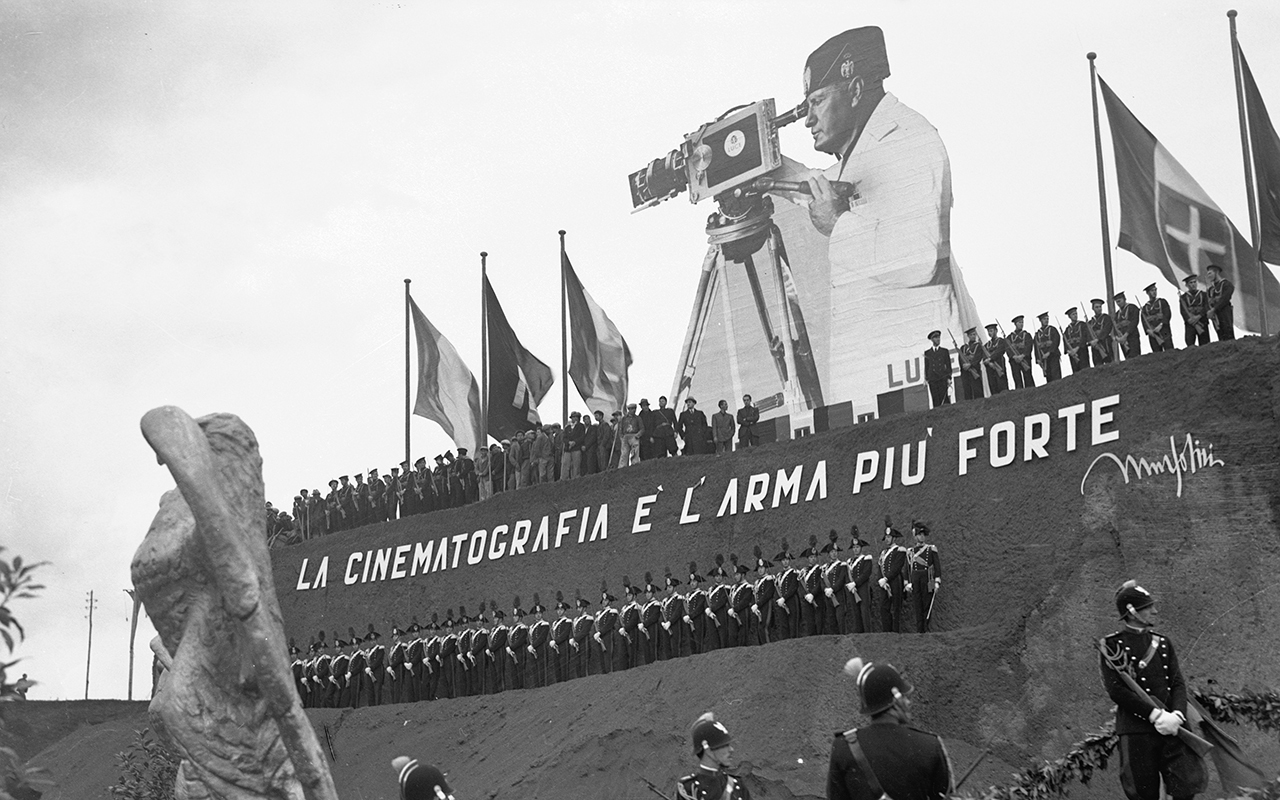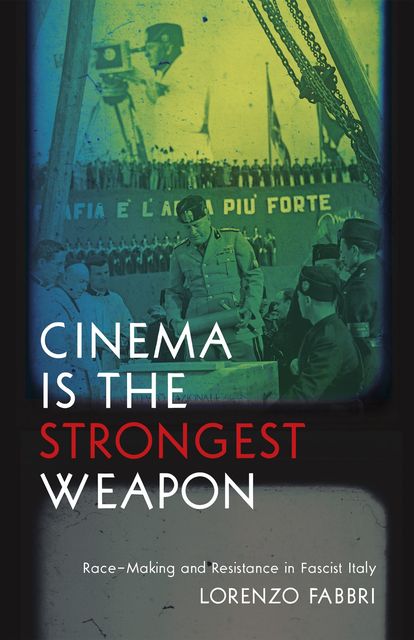Cinema Is the Strongest Weapon
Race-Making and Resistance in Fascist Italy
Looking at Italy’s national film industry under the rule of Benito Mussolini and in the era that followed, Cinema Is the Strongest Weapon examines how cinema was harnessed as a political tool by both the reigning fascist regime and those who sought to resist it. Covering a range of canonical works alongside many of their neglected contemporaries, this book explores film’s mutable relationship to the apparatuses of state power and racial capitalism.
Exploiting realism’s aesthetic, experiential, and affective affordances, Mussolini’s biopolitical project employed cinema to advance an idealized vision of life under fascism and cultivate the basis for a homogenous racial identity. In this book, Lorenzo Fabbri crucially underscores realism’s susceptibility to manipulation from diametrically opposed political perspectives, highlighting the queer, Communist, Jewish, and feminist filmmakers who subverted Mussolini’s notion that “cinema is the regime’s strongest weapon” by developing film narratives and film forms that challenged the prevailing ethno-nationalist ideology.
Focusing on an understudied era of film history and Italian cultural production, Fabbri issues an important recontextualization of Italy’s celebrated neorealist movement and the structural ties it shares with its predecessor. Drawing incisive parallels to contemporary debates around race, whiteness, authoritarianism, and politics, he presents an urgent examination into the broader impact of visual media on culture and society.
Background photo copyright Archivio Storico Istituto LUCE Cinecittà.

Table of Contents
Metadata
- rightsThis book is freely available in an open access edition thanks to TOME (Toward an Open Monograph Ecosystem)—a collaboration of the Association of American Universities, the Association of University Presses, and the Association of Research Libraries—and the generous support of the College of Liberal Arts at the University of Minnesota, Twin Cities. Learn more at the TOME website, available at openmonographs.org.
Chapter 7 was originally published as “Queer Neorealism: Luchino Visconti’s Ossessione and the Cinema Conspiracy against Fascism,” Screen 60, no. 1 (Spring 2019): 1–24. Portions of the Conclusion are adapted from “Neorealism as Ideology: Bazin, Deleuze, and the Avoidance of Fascism,” The Italianist 35, no. 2 (2015): 182–201, https://doi.org/10.1179/0261434015Z.000000000115.
Copyright 2023 Lorenzo Fabbri
Cinema Is the Strongest Weapon: Race-Making and Resistance in Fascist Italy is licensed under a Creative Commons Attribution-NonCommercial-NoDerivatives 4.0 International License (CC BY-NC-ND 4.0)
- isbn978-1-4529-7232-9
- publisherUniversity of Minnesota Press
- publisher placeMinneapolis, MN
- restrictionsPlease see the Creative Commons website for details about the restrictions associated with the CC BY-NC-ND 4.0 license.
- rights holderLorenzo Fabbri
- doi


